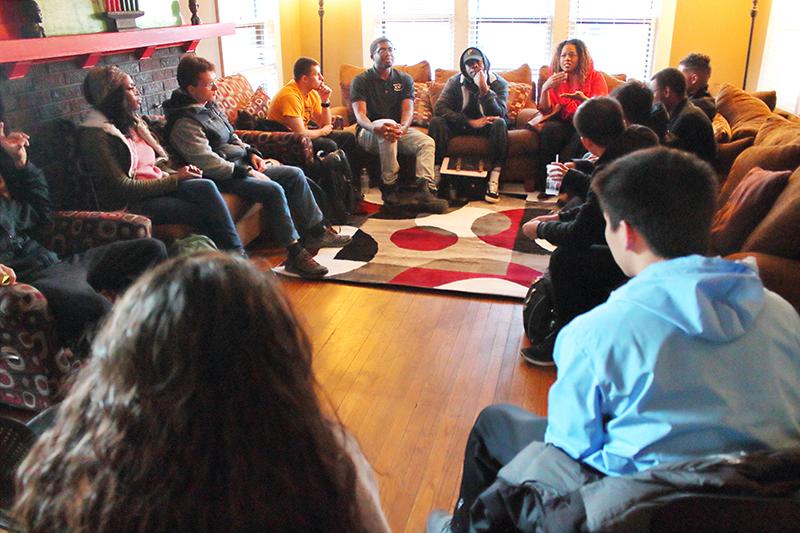The most awkward situations I have had at the University of Iowa happen when topics of race are brought up in class. In my rhetoric class, whenever my professor would bring up race or blackness, she would gesture to me or ask me what it was like for me.
In another discussion-based class, one that was normally quite talkative, we had to read and discuss a James Baldwin piece. But the discussion was painfully quiet, because everyone waited for my response to the subject matter. Even the TA leading the class was unusually quiet.
Executive Director of the Center for Diversity and Enrichment Nadine Petty said that while she cannot speak for all students, she has had students of color come to her and express their problems with being a minority on campus.
“In general, for black students on campus, the same feeling comes up,” Petty said. “They feel alienated, they feel misunderstood, there are a lot of microaggressions that they’re dealing with.”
These problems almost entirely fade away when I am in a class with a black professor. I immediately feel more relaxed, and the need to code switch, or “talk white,” is less pressing on me. Comments about how “well-said” I am or questions such as “As a black man, how does this make you feel?” completely disappear.
“It’s important to have more of a diverse group of faculty on campus because you get more of a diversity of perspectives,” UI Assistant Professor of sociology and African American Studies Jessica Welburn said. “It’s important for students to have access to faculty from diverse backgrounds not only to be able to expand their horizons and develop exposure to diverse ideas, but I also think it’s important for students of color to see someone who looks like them so that they think about what they want to do in the future and see the possibilities.”
I’m not saying that all white professors are insensitive to black student needs, nor am I saying that all black professors are flawless. But seeing a black face in a teaching position does something within, something hard to describe; it makes the class more comfortable for me.
Black professors give me someone I can relate to, and someone who understands my problems. Not only that, but they broaden my ideas about race in the classroom, and I’m sure that goes for students of every race.
“All students of color, and in this case black students, need to see themselves reflected in faculty and staff,” Petty said. “It’s tantamount to their sense of well-being. Research shows it also increases their chances of success in predominantly white institutions.”
Being black, or of any minority for that matter, can be very uncomfortable in class environments because it can single out black students as stand-ins for the entire black race. Welburn says that in her classes, she uses documentaries to give a representation of the black community that isn’t the students in the class.
This is one of many ways that can help to make black students feel welcome here instead of making them feel “othered.”
“If the success of our diverse students is important to us as an institution, then we need to do everything possible to ensure that success,” Petty said.









